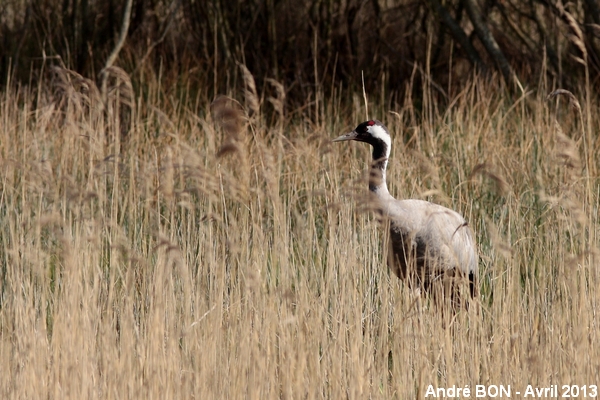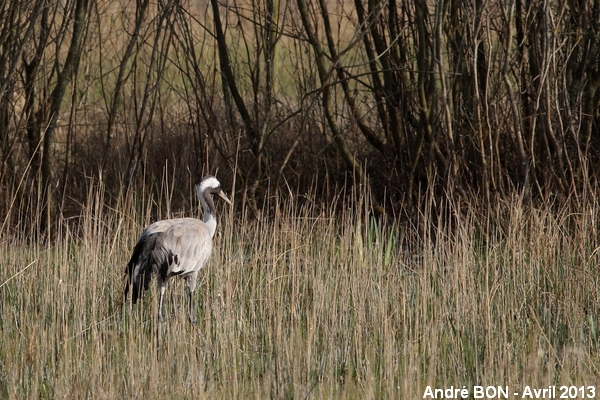

| Common Crane (Grus grus (Linnaeus, 1758)) |


|
|
Scientific name: Grus grus (Linnaeus, 1758) Common name: Common Crane French name: Grue cendrée Order: Gruiformes Family: Gruidae Size: Size: 100 to 120 cm; Weight: 4 to 6 kg; Wingspan: 180 to 240 cm. Habitat: Taiga, mixed forests and heathlands during the breeding season, shallow lakes and bays, flooded areas, marshy meadows and cultivated area in winter. Food: Omnivorous, mainly plants during winter, insects and small animals during the breeding season. Nesting: The nest is large platform made of dry grasses and located on the ground. There are one to two eggs per brood. Migration: Common Cranes migrate in large flocks forming large V-shapes in the sky. They follow a rather narrow corridor from northern Europe to North Africa crossing France in diagonal and then Spain. Some birds stop to winter at the Lac du Der in the French region of Champagne or in Extremadura in Spain. There are other migration paths in Asia like, per example, from central Asia to Ethiopia thru the Nile Valley. Geographic area: Northern regions of Europe and Asia in summer, Spain, North Africa, Ethiopia, Persian Gulf, north of India and south of China in winter. |
The Common Crane has a globally grey plumage. The remige feathers are black or very dark bluish. The large tail is in fact formed by the loose wing feathers hanging down at the back. The upper side of the neck and the head are black with a red patch of bare skin on the cap. A long white stripe starts from the eye and extends at the back of the neck. The grey bill is long and sharp, the legs are black. Common Cranes fly with outstretched neck and legs. Common Cranes pair for life. |
| [To know more about the Common Crane] [Next picture] [Top] |

|
The park of Marquenterre, in the Somme bay, is not located on the migration corridor of Common Cranes. This injured bird has been rescued by the park and now stays here all year round as it cannot fly anymore. |
| [To know more about the Common Crane] [Previous picture] [Top] |

|
I need now to visit the Lac du Der in winter to observe large flocks of Common Cranes. |